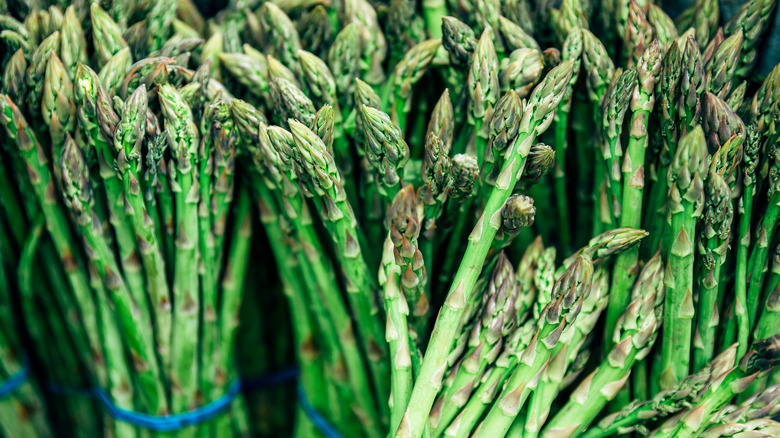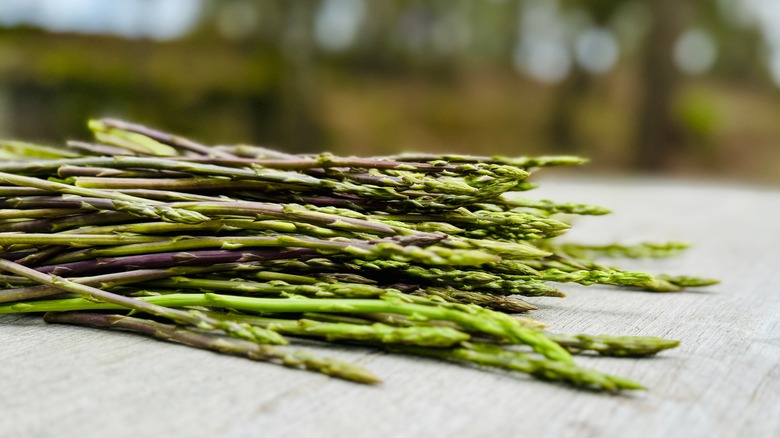Why You Should Be Wary Of Thin Asparagus
There are lots of little mistakes that can get in the way of making perfectly cooked asparagus. Beyond cooking and preparation, there is one aspect that is often overlooked: the produce itself. Chefs like Julia Child understood this and had tons of tips for picking the perfect asparagus at the store, right down to the thickness of each individual stalk.
The thickness of asparagus matters because it can affect several aspects of cooking. There's a belief in the culinary world that thin asparagus is better, but that isn't always true. Granted, thin asparagus can have its uses, but it can be difficult to cook with too. The reason why is simple: Thin asparagus doesn't have the amount of flesh needed to withstand high heat for long amounts of time. As a result, thin asparagus cooks way faster.
Misunderstanding how to use thin asparagus can result in it being overcooked. Use it for high heat cooking like roasting or grilling and thin asparagus can turn limp and soggy, or it can shrivel up and become tough to eat. So, use it with caution in such recipes. That said, both thick and thin asparagus have their merits, but first you have to know and understand these merits in order to utilize them. Having the proper knowledge can help make cooking asparagus much easier.
How asparagus thickness affects cooking
There is a longstanding myth that thin asparagus is the best while thick asparagus is too fibrous, but that isn't actually the case. In fact, the opposite is more likely to be true, as thinner asparagus has more concentrated fibers in its stalks. This concentration is what results in that woody texture that many dislike. It's also less juicy than its thicker counterparts.
While the texture of thin asparagus can leave much to be desired if exposed to high heat or cooked for too long, that doesn't necessarily mean that it's unusable. Rather, thin asparagus needs to be handled properly in order for it to be enjoyable when eating. For that, the first thing to acknowledge is the type of recipe itself.
Thin asparagus is best suited for less-cooked dishes; think appetizers, salads, and the like. Thin asparagus can also be pureed into sauces or soups. That said, if you're looking to roast asparagus or make an entrée, like asparagus and lemon ricotta tarts, thin asparagus is more likely to fail you.

